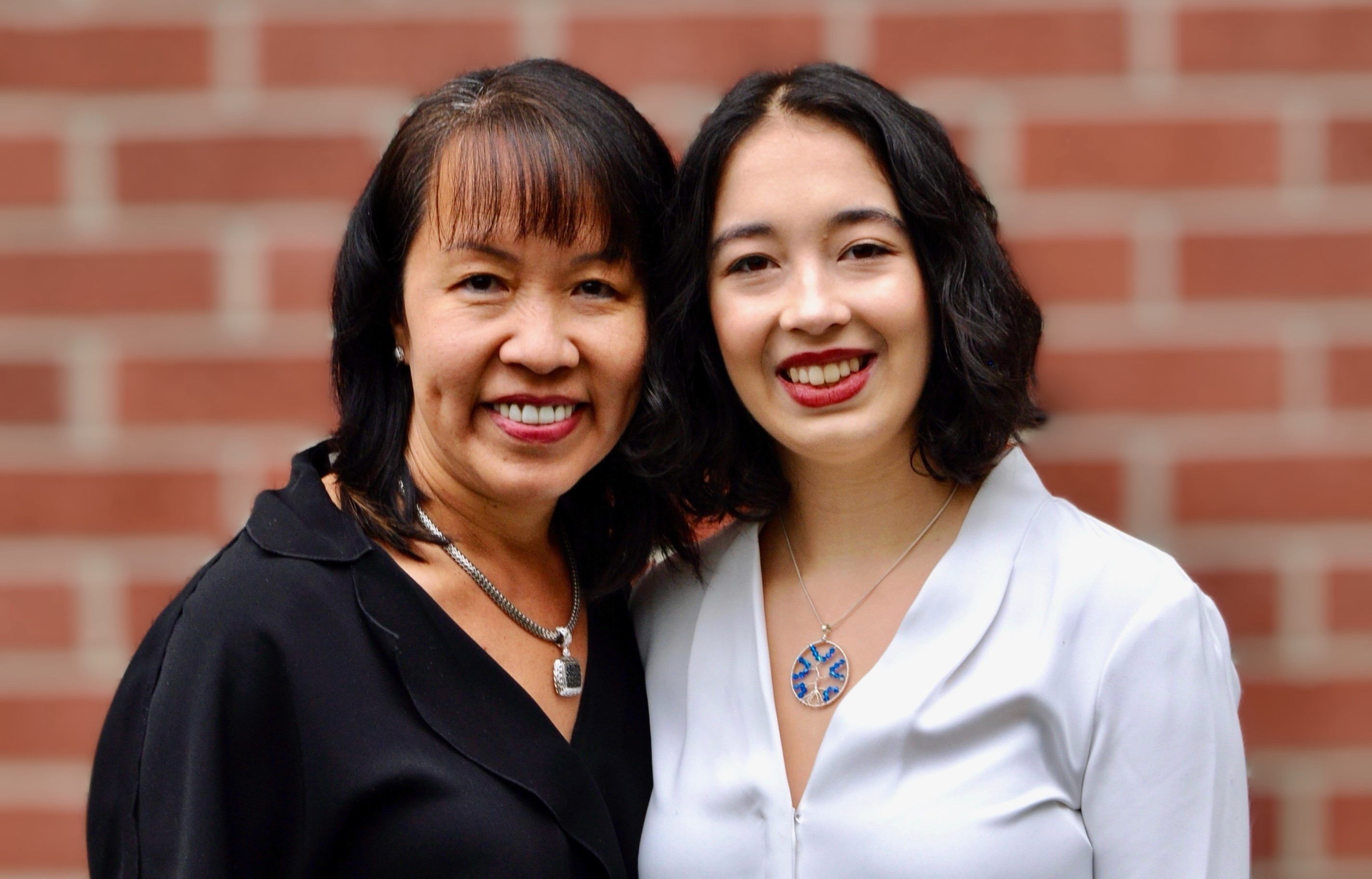
Mother-daughter Jean Yuen and Nicole Del Negro are at different stages in their legal journeys.
Jean (LLB’92) is an Allard Law alumna and Shareholder at Boughton Law. Her practice focuses on establishing successful partnerships between First Nations and industry partners and advancing development projects on First Nations lands that bring tangible benefits to Indigenous communities. In recognition of her work, she was recently awarded the 2023 YWCA Women of Distinction Award in the category of Reconciliation in Action (Ally).
Nicole has just begun her second semester as an Allard Law student. Just as her mother was encouraged by her parents to consider law, Nicole says she was likewise encouraged and inspired by her own mother. She entered law school this year equipped with a Master's in Business Management from UBC Sauder School of Business and diverse professional experience.
In this Q&A, Jean and Nicole share some of their insights based on their unique – and shared –experiences.
Jean Yuen
What was your path to law school? Did you always know you wanted to be a lawyer?
Jean: As far back as I can remember, my parents always suggested that I go into law. Following my parents’ aspirations for me, I went to law school not knowing what to expect.
Well, I loved law school from day one and have had a very satisfying career. I will always be grateful to my parents for their encouragement.
What role has mentorship played in your legal career?
Jean: While there were no formal mentorship programs in the early days of my career, I was fortunate to have had informal mentors. Some of my mentors not only provided guidance and support but also acted as my advocates and became life-long friends.
In your experience how important is economic self-sufficiency for First Nations? And in your position, how do you help achieve that goal?
Jean: Economic self-sufficiency, in my view, is critical to self-determination for First Nations. Like all governments, First Nations require the financial resources to put in place the systems that serve the needs and interests of their communities, and take control of their destinies.
My primary area of expertise is in structuring developments on First Nation reserve lands. By assisting First Nations and developers in navigating the complex regulatory environment that confronts reserve lands. I strive to contribute to the establishment of successful projects that will provide lease and taxation revenues to the First Nations on whose lands the projects are on, in addition to other benefits, such as jobs and contracting opportunities for those First Nation communities.
What are the major differences you’ve observed from when you began practicing Aboriginal law to today?
Jean: When I started working in the area of developments on reserve land in the late 1990s, I was astonished by the institutional rigidity and indifference of the federal bureaucracy, which controlled all aspects of on reserve development.
Twenty-five years later, more and more First Nations have assumed control over the management of their reserve lands and implemented processes that meet their own timelines and unique needs. Federal bureaucracy remains a challenge for some First Nations, but there are now options for First Nations to assume control.
Nicole Del Negro
Did your mother being a lawyer impact your decision to go to law school?
Nicole: Growing up with a mom who is a lawyer meant that going to law school was always a path I considered. She showed me that it was possible and encouraged me to consider it, just as her parents encouraged her. I grew up surrounded by lawyers, many of whom were her friends from law school, so I didn’t have the same apprehension about law school and legal practice that I think others with less exposure to lawyers often have.
Going to law school has brought my mother and me closer, as it’s a shared experience we can talk about. I frequently call her to discuss cases and get her thoughts on issues that come up in my classes.
Would you recommend students gain work experience before starting law school?
Nicole: Definitely. While returning to school after working for four years has been an adjustment, I’m grateful for my work experience. The maturity and experience that I gained from working have made law school more manageable. I’m better at managing my time now than I was during my undergraduate and master’s degrees, and I have a better school/life balance as a result.
Getting out of the mindset of hyper-focusing on grades was also helpful going into school. While I know that grades still matter, I feel less defined by them, so it’s easier to accept a less-than-ideal grade, learn from it, and move on, without feeling like my self-worth has taken a blow.
You own a small business called Umbrella Bird Jewellery. How do you balance your work as an entrepreneur with law school?
Nicole: I started my business in 2013, so I’ve had over a decade to figure out how to strike a good balance between running the business and my other obligations. During periods when I have had more free time, I’ve been able to focus more on my jewellery business in ways such as attending local markets, creating new designs, managing social media and updating my Etsy store.
Law school is certainly not one of those periods, so my focus has primarily been on filling orders as they come in and restocking materials as necessary. While I enjoy getting to grow my business, right now I’m enjoying making jewellery as a creative outlet and break from readings.
Rapid Questions
What is your favorite activity to do together?
Jean & Nicole: Trying new restaurants
What’s one word you would use to describe each other?
Jean’s description of Nicole: Multi-Talented
Nicole’s description of Jean: Inspiring
What is your favorite memory from law school?
Jean: The trike race
Nicole: Post-exams celebrations
First published on February 13, 2024.